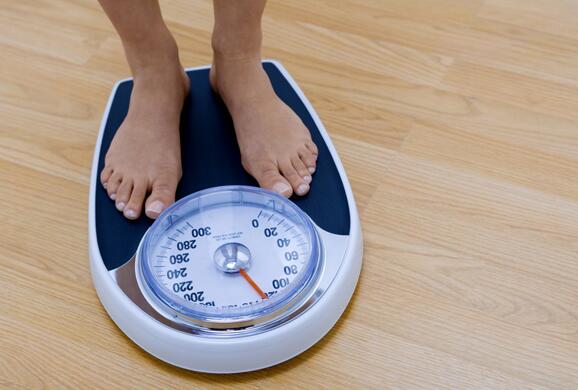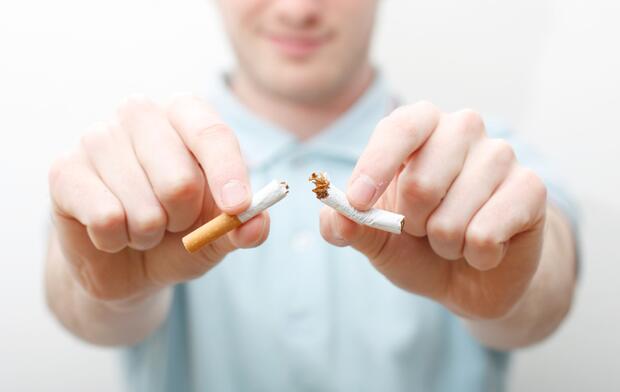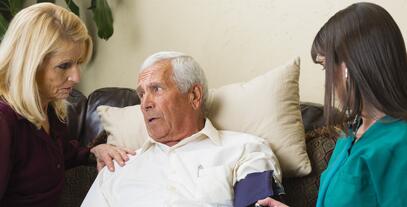Tips for Living With Heart Failure
By

Tips to Stay Healthier, Longer
Nearly five million Americans of all ages are living with heart failure. Another 400,000 will be diagnosed within a year. With heart failure, the heart can't pump blood the way it should. If you’re one of the millions who have this condition, here’s what you need to know about living well with heart failure.

1. Learn about your condition.
The more you know about heart failure, the easier it will be to live with it. Managing heart failure means following your heart failure treatment plan. You will comply better with your treatment plan if you know what you’re doing and why. Start by talking with your doctor (and don't be afraid to ask a lot of questions). Good places to research online are the American Heart Association, the Heart Failure Society of America, and the National Heart, Lung, and Blood Institute.

2. Watch your salt.
If you eat a lot of salt, you will retain water. That puts pressure on your already weakened heart and blood vessels. A low-salt diet means skipping processed, packaged foods and salty snacks like potato chips, peanuts and pretzels. Opt instead for fresh foods and those labeled “no salt added” or “low sodium.”

3. Weigh yourself every day.
When you are living with heart failure, you must weigh yourself daily. It’s best if you do it at the same time every day, on the same scale. Record your weight on a calendar. If you gain three pounds or more in a few days, tell your doctor. Sudden weight gain could mean your heart failure is getting worse. Report more gradual weight gain as well.

4. Take your meds.
Your doctor may prescribe a diuretic to help reduce fluid buildup. As part of your heart failure treatment plan, you also may need to take other medications, like beta blockers and angiotensin-converting enzyme (ACE) inhibitors. They can help decrease strain on your heart and keep your heart failure from getting worse. Make sure you understand what your medications are and why you take them. Talk with your doctor about possible side effects. Be sure to ask when you should report them.

5. Get moving.
One symptom of heart failure is fatigue. It may not seem logical, but exercise can help you fight fatigue. Exercise also can help you strengthen your heart, which is a muscle. It also improves your lung capacity. Your exercise routine should include stretching for range of motion and flexibility. It also should include aerobic exercises, such as walking or water aerobics. However, talk with your doctor before starting any new exercise.

6. Watch your fat intake.
Your diet should be low in saturated fat and trans fat. These unhealthy fats can make your heart, which is already weak, have to work harder. When your heart is stressed, fluids can build up in your body. Fat also can cause plaque to build in your arteries, and that can lead to a heart attack.

7. Eat fruits and vegetables.
To keep your heart healthy, you need vitamins and minerals. Fresh fruits and vegetables are an excellent source. One key nutrient is potassium. Some heart failure drugs can rob you of potassium. If you don’t have enough potassium, your heart can beat irregularly. Good sources of potassium are bananas, melons, beans, raisins, potatoes and beets. Too much potassium can also be a problem, though, so check in with your doctor about how much you need.

8. Shed extra pounds.
Carrying around extra weight can strain your already weak heart. If you're overweight, you need to lose weight to keep your heart from being overtaxed. The two best ways to do that are by cutting calories and exercising. Taking in fewer calories and burning more by being more active will be good for your heart. Just be sure to talk with your doctor about your plans.

9. Stop smoking.
Most everyone knows that smoking can cause lung cancer. But, it can also make your heart have to work harder and beat faster to pump blood through your body. With heart failure, that's already a problem. If you smoke, it’s vital you quit. If you need help quitting, ask your doctor about smoking cessation classes in your area or medicines that can help you quit. Alcohol also can weaken your heart further. The best approach with heart failure: Don’t drink and don’t smoke.
Popular Picks
-
11 Things Doctors Want You to Know About Heart Failure
8 Surprising Facts About Heart Failure
-
5 Foods to Avoid When You Have Heart Failure
Complications of Heart Failure
Was this helpful? (226)
Medical Reviewers: William C. Lloyd III Last Review Date: May 16, 2019
© 2019 Healthgrades Operating Company, Inc. The content on Healthgrades does not provide medical advice. Always consult a medical provider for diagnosis and treatment. All rights reserved. May not be reproduced or reprinted without permission from Healthgrades Operating Company, Inc. Use of this information is governed by the Healthgrades User Agreement.
ADVERTISEMENT
Want More Healthgrades?
Subscribe to Our Healthy Living Newsletter
SUBMIT
By submitting this form, you agree to the terms and conditions of the Healthgrades User Agreement and Privacy Policy and may opt out at any time.
You Might Also Like
8 Surprising Facts About Heart Failure
Common Causes of Heart Failure
There are three common conditions that are the most likely causes of heart failure. Find out what they are.


